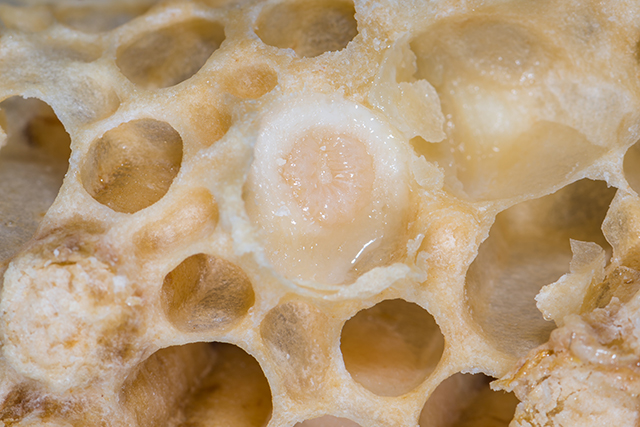Coconut oil beats toxic DEET at repelling insects
08/21/2024 / By News Editors

Millions use a toxic chemical known as DEET to repel insects. Compelling new research shows that a far safer and more effective food-based alternative exists.
(Article republished from GreenMedInfo.com)
Last month, the United States Department of Agriculture’s Research Service posted a bulletin with a surprising headline: Coconut Oil Compounds Repel Insects Better than DEET. This announcement followed the results from a study by USDA researchers published in the journal Scientific Reports, stating that fatty acids derived from coconut oil had long-lasting repellency against certain insects—an even better effect than the most widely-used insect repellent in the world.
DEET (chemical name, N,N-diethyl-meta-toluamide) is the active liquid ingredient in a variety of bug-repellent sprays, lotions, sticks, roll-ons and other consumer products. According to the EPA, as many as one-third of the US-population routinely applies DEET products, with concentrations of the chemical ranging from as low as 5% to as high as 99%.[1] Developed in the 1940s by the US Army to protect soldiers in bug-infested areas, DEET was first introduced to consumer markets in the late-1950s and is currently listed with the EPA as a key ingredient in around 120 products.[2]
Designed for direct application to the skin, DEET works by forming a barrier that masks the human scent from attracting insects. Rather than blocking an insect’s bite, when DEET is liberally applied, insects fail to detect that a human is nearby. Protection from diseases caused by biting insects has never been more important. In May 2018, the Centers for Disease Control reported a three-fold increase in illnesses caused by mosquito, tick, and flea bites in the United States, up from 27,000 reported cases in 2004 to over 96,000 cases reported in 2016.[3]

While DEET has repeatedly been assessed as “safe” by the EPA and other chemical watch groups, there is mounting science supporting caution and extreme moderation of use for most individuals. Animal studies have linked exposure to the chemical to immune-system suppression, as well as transgenerational disease inheritance and sperm mutations. In humans, sensitivity to the chemical is highly individualized, with documented cases of pruritus (extreme itching of the skin) and erythema (extreme redness of the skin) presenting for one individual after a single, normal-dose exposure to a product containing just 5% DEET.[4] In 2013, a single exposure to a product containing 7% DEET led to an outbreak of severe hives for an otherwise healthy 22-year old man.[5] A large-scale meta-analysis of more than 20,000 human exposures to DEET underscores even more serious risk potential. The analysis, published in 2002 in the International Journal of Toxicology, analyzed 20,764 exposures involving insect repellents containing N,N-diethyl-m-toluamide (DEET) that were reported to poison control centers from 1993 to 1997. Twenty-six subjects experienced major effects and two deaths were reported, one in a 26-year-old male and one in a 34-year-old female, both following a single dermal exposure.[6]
Such risks have led health-conscious consumers to seek an all-natural alternative to repel biting bugs. For these individuals, the USDA’s latest findings may be the holy grail they’ve been seeking. The research was conducted by a team of scientists from the Agroecosystem Management Research Service (ARS) in Lincoln, Nebraska, the USDA’s chief scientific research agency whose focus is finding solutions to agricultural problems affecting America. Led by entomologist Junwei Zhu, researchers conducted laboratory bioassays in which specific medium-chain length fatty acids derived from coconut oil actively repelled an array of disease-spreading insects, including biting flies, ticks, bed bugs and mosquitoes. The fatty acids’ repellency was stronger and had longer residual activity than that of DEET, fending off biting flies and bed bugs for up to two weeks after application, and repelling ticks for up to one week, as compared with DEET’s three days of effectiveness.
These benefits are imparted to animals that are affected by biting insects, too. The team prepared an aqueous, starch-based formulation for use on pastured cattle that repelled biting flies for up to 96-hours in the heat of summer, a finding that the team asserted was “the longest protection provided by a natural repellent product studied to date.” The overall effectiveness of coconut oil at repelling stable flies was greater than 95%, compared with DEET’s 50% effectiveness. Junwei Zhu stated in the release that “coconut oil itself is not a repellent,” but rather, it is the specific fatty acids that were isolated in the oil. In addition, a much greater concentration of coconut oil acids was necessary as compared to the percentage of DEET concentration, however that’s hardly a downside when considering that there are no negative effects associated with the use of non-toxic coconut oil in any concentration.
The research found that the coconut oil compound provided more than 90% repellency against mosquitoes, including the strain of mosquito responsible for transmitting the deadly Zika virus. It also out-lasted DEET against bed bugs and ticks, and by a wide margin. DEET was shown to work against these biting insects for around three days, whereas the natural fatty acids repelled ticks and bed bugs for a full fourteen days. According to researchers, the coconut oil-derived compounds offered longer-lasting protection from these blood-feeding insects than any other known natural repellent. Eager to take economic advantage of their findings, ARS has filed a patent application for this new technology and is working to develop commercial repellent products derived from the isolated fatty acids.
Even plants require a certain amount of insect protection to prevent them from being destroyed by undesirable pests. Traditional healers were quick to note those plants which biting insects avoided in hopes that they could extract these vital properties and impart their defenses to humans. This close attention to the natural world has yielded an array of essential oils revered for their insect-repellent properties. Essential oils such as litsea, lemongrass, and citronella are excellent at keeping mosquitoes at bay. Catnip, the favorite herb of felines everywhere, has been shown to exhibit insect-repellent properties and has even been considered as part of urban filth-fly management strategies.
A 2014 study was on the right track with field trials of essential oil mixtures tested against two types of mosquitoes, then compared against two commercial mosquito repellents. Using ylang ylang and lemongrass oils suspended in a base of coconut oil, olive oil, or soybean oil, researchers found that the compound with the coconut oil base was the most efficacious, although slightly less effective than the commercial DEET product.
The USDA’s latest findings may have provided the missing scientific link that enables an all-natural insect repellent to be perfected. The infinite intelligence of the natural world combined with mankind’s relentless search for a better solution may one day make DEET obsolete!
Read more at: GreenMedInfo.com
Submit a correction >>
Tagged Under:
bug bites, bug repellent, coconut oil, deet, discoveries, fatty acids, green living, health science, insects, natural health, natural ingredients, phytonutrients, poison, prevention, real investigations, remedies, research, toxic chemicals, toxic ingredients, Xpost
This article may contain statements that reflect the opinion of the author
RECENT NEWS & ARTICLES
consumerwellness.info is a fact-based public education website published by consumerwellness.info
All content copyright © 2023 by consumerwellness.info
Contact Us with Tips or Corrections
All trademarks, registered trademarks and servicemarks mentioned on this site are the property of their respective owners.




















